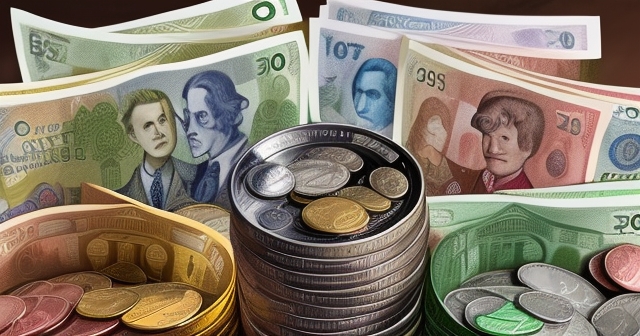Unveiling Sterling Slang: A Deep Dive into British Currency Lingo
Stepping into the world of global finance and currency exchange can feel like navigating a complex maze. We often focus on official terms, economic indicators, and trading charts. But every currency, especially one as historically rich as the British Pound Sterling, carries a fascinating layer of informal language – its slang. For anyone looking to truly understand a market, grasping its cultural nuances, including its money slang, is invaluable. It’s like learning the difference between formal business reports and casual office chat; both provide insight, just in different ways. As you embark on your investment journey or seek to deepen your market knowledge, understanding terms used on the street or in casual conversation can offer a unique perspective, complementing your formal analysis. Have you ever heard someone mention ‘quid’ or ‘fiver’ and wondered what they meant? You’re about to find out.
In this exploration, we’ll go beyond the charts and data points to uncover the vibrant world of sterling slang. We’ll start with the formal definition of the British Pound Sterling (GBP), explore why currencies develop slang in the first place, and then dive into the specific terms that populate casual conversation in the United Kingdom. Our goal isn’t just to list words, but to understand their context, their connection to British culture, and how they fit into the broader landscape of finance and everyday life. Think of this as adding a crucial layer to your financial vocabulary – not for trading algorithms, but for real-world understanding and cultural fluency. Ready to translate the informal talk of UK money?
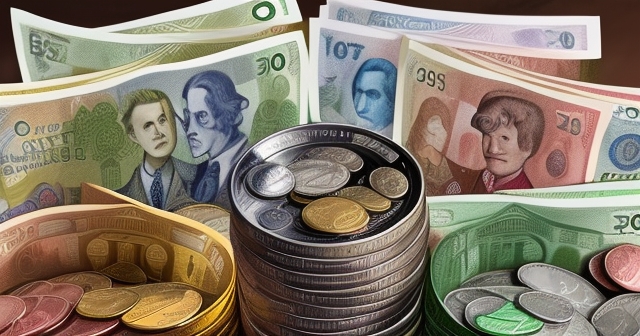
The Formal Face: Understanding the British Pound Sterling (GBP)
Before we delve into the colourful world of informal terms, let’s firmly establish the official identity of the currency we’re discussing. The formal name is the British Pound Sterling, often abbreviated as GBP on financial markets. It is the official currency of the United Kingdom, encompassing England, Scotland, Wales, and Northern Ireland. Its symbol, perhaps one of the most globally recognised currency symbols after the dollar sign, is £. This symbol is derived from the Latin word ‘libra’, meaning pound, referring to a unit of weight. This historical connection hints at the currency’s deep roots, a history we’ll touch upon shortly.
The Pound Sterling isn’t just a local medium of exchange; it holds significant weight on the international stage. Did you know it is consistently ranked as the fourth most traded currency in the global foreign exchange market? This places it behind only the US Dollar, the Euro, and the Japanese Yen. Furthermore, it stands as the third most popular currency held in foreign reserves by central banks worldwide, underscoring its stability and importance in the global financial system. Its longevity is also remarkable; the Pound Sterling is often cited as the oldest currency in the world still in continuous use, a testament to centuries of history, economic shifts, and cultural evolution. Overseeing its issuance, monetary policy, and financial stability is the responsibility of the Bank of England, the central bank of the UK, playing a pivotal role in maintaining the value and trust associated with the GBP.
Understanding this formal background is crucial. It provides the bedrock upon which the informal layer of slang is built. While ‘pound’ and ‘sterling’ are the official terms you’ll encounter in financial reports, currency exchange offices, and central bank statements, the everyday conversation, as we’ll explore, often takes a different, more casual turn. It’s the difference between referring to a vehicle as an ‘automobile’ in a technical document and a ‘car’ or ‘wheels’ in daily chat. Both refer to the same object, but the context and nuance are entirely different. By appreciating the formal standing of the GBP, we can better understand how and why its slang terms have become so deeply embedded in the UK’s social and economic fabric.
Here are some essential facts about the British Pound Sterling:
- The currency was first introduced in the 8th century.
- Queen Elizabeth II has been featured on all British banknotes since the 1960s.
- The currency has undergone various changes, including a decimalisation process in 1971.
| Feature | Details |
|---|---|
| Current Symbol | £ |
| Country of Issue | United Kingdom |
| Date of Decimalisation | 1971 |
The Economic Backbone: Contextualizing Sterling’s Value
To fully appreciate the significance of the British Pound Sterling, both formally and informally, it helps to have a basic understanding of the economic landscape it underpins. The United Kingdom boasts one of the world’s largest and most dynamic economies, currently ranking as the sixth largest globally. This economic strength contributes significantly to the stability and international standing of the GBP. A robust economy supports a strong currency, influencing everything from exchange rates to internal purchasing power – and yes, even the informal ways people talk about their money.
The UK economy is diverse, with key sectors driving its output and influencing the flow of money. Prominent among these are financial and business services, concentrated heavily in London, a major global financial hub. Manufacturing also plays a significant role, producing goods for domestic consumption and export. The construction sector is a vital component, constantly shaping the physical infrastructure of the nation. Furthermore, tourism brings in substantial revenue, introducing visitors from around the world who interact with the British currency daily. Each of these sectors contributes to the overall economic activity that gives the Pound Sterling its value and facilitates the transactions where both formal and informal terms are used.
Understanding this economic context is not just academic; it highlights the real-world transactions that make sterling slang relevant. Whether it’s a builder talking about his ‘dosh’ for a job, a tourist asking about the cost in ‘quid’, or someone discussing earning a ‘monkey’ in the financial district, these terms are used within the context of genuine economic activity. The strength and nature of the UK economy provide the backdrop against which these informal terms for money are born and thrive. It’s a powerful reminder that currency is not just an abstract concept represented by numbers on a screen; it’s the tangible medium of exchange that facilitates life and commerce within a specific economic environment. By connecting the currency slang to the economic context, we gain a richer understanding of its place in society. How does this vibrant economy influence the language people use about their earnings and spending?
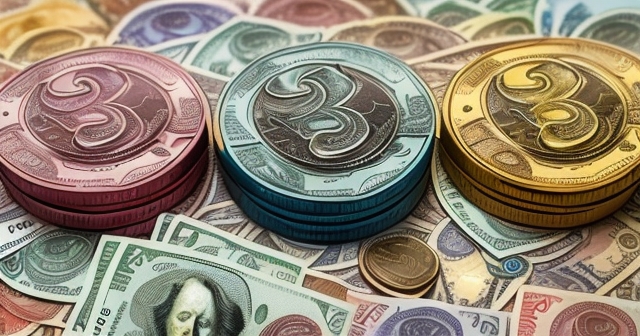
Why Does Money Have Slang? Exploring the Universal Phenomenon
The use of slang terms for money is by no means unique to the British Pound Sterling. It is a widespread, almost universal phenomenon observed in cultures and languages across the globe. From ‘bucks’ in the US for dollars to ‘euros’ being called ‘quid’ (confusingly, yes, but distinct contexts!) or other terms in different European countries, informal money language is everywhere. Why is this the case? Why do we, as societies, feel the need to create these alternative lexicons for something as fundamental and universally understood as money?
Several factors contribute to the development and proliferation of money slang. Often, terms emerge from the physical characteristics of the banknotes or coins themselves. Their colour, size, texture, or images printed on them can inspire nicknames. The value a denomination represents is another common source; terms might evolve based on the spending power or significance of certain amounts. Historical context also plays a crucial role; sometimes, slang terms originate from older units of currency, historical events, or even specific trades or professions. For example, old trading practices or weights and measures can leave linguistic residues in modern slang. Furthermore, slang is fundamentally social. It can serve as a form of in-group language, fostering a sense of community among those who use it. Specific terms might be prevalent within certain social groups, regions, or professions before potentially becoming more mainstream. Think of the specific jargon used in a particular industry; currency slang operates similarly, though often more broadly.
These informal terms add layers of meaning and context that formal terms like ‘pound’ or ‘dollar’ simply don’t capture. They can convey attitude, familiarity, or even a certain playfulness towards money. They are part of the living language, evolving over time and reflecting cultural attitudes towards wealth, spending, and value. The phenomenon of UK money slang, with its specific terms for the British currency, is a perfect example of this universal tendency. It shows how language adapts to daily life, creating colourful and often evocative terms for the monetary units we handle every day. Understanding this broader context helps us appreciate the specific examples of sterling slang we will explore next. It’s a reminder that language, even about something as seemingly rigid as currency, is dynamic and culturally embedded.
More Than Just Money: The Varied Meanings of “Sterling”
Before we get lost in the fascinating world of sterling slang referring specifically to money, it’s important to pause and note that the word “sterling” itself has multiple meanings in the English language. This distinction is vital for clear communication and avoiding confusion, whether you’re discussing finance, literature, or antique silverware. While in the context of British currency, “Sterling” is synonymous with the Pound Sterling (GBP), its usage extends beyond the financial realm.
One of the most common alternative meanings of “sterling” is as an adjective meaning “very good in quality,” “excellent,” or “genuine.” For instance, you might hear someone describe a person’s character as “sterling,” meaning they possess admirable and solid qualities. A “sterling performance” indicates an exceptionally good effort or achievement. This adjective use carries a connotation of high standard, reliability, and genuineness. It speaks to something that is truly first-rate. This meaning is quite distinct from its use as a noun referring to currency, yet both usages evoke a sense of value and worth, albeit in different domains.
Another significant meaning relates to metallurgy. “Sterling silver” refers to an alloy of silver containing 92.5% by weight of silver and 7.5% by weight of other metals, usually copper. This specific composition was historically used for coinage and is widely used today for jewellery, silverware, and decorative objects. The term “sterling” in this context refers to the standard purity of the silver alloy. The link here is more direct to historical coinage, where coins were literally made of sterling silver, connecting the metal’s quality standard to the currency’s integrity. Finally, “Sterling” can also be used as a personal name, though perhaps less commonly than its other uses. These varied meanings highlight the richness of the English language and serve as a reminder that context is always key when interpreting words. When we talk about sterling slang, we are specifically focusing on the terms derived from the currency meaning, but being aware of these other definitions enriches our overall linguistic understanding.
| Definition | Context |
|---|---|
| Excellent Quality | Describing a person’s character |
| Sterling Silver | Jewellery and coinage purity |
| Personal Name | Less common usage |
Cracking the Code: Specific Sterling Slang Terms Explained
Now that we’ve established the formal identity of the British Pound Sterling, understood why money slang exists, and clarified the multiple meanings of the word “sterling,” it’s time to dive into the heart of our topic: the specific slang terms used for UK money. These terms are part of the everyday lexicon for many in the UK, adding flavour and informality to financial discussions. While some terms are extremely common, others might be more regional or less frequently used, but all contribute to the rich tapestry of sterling slang.
We encounter a variety of terms that refer to general money or specific denominations. Let’s introduce some of the most prominent ones:
- Quid: This is perhaps the most ubiquitous slang term for the British pound.
- Fiver: Refers specifically to a £5 banknote.
- Tenner: Refers specifically to a £10 banknote.
- Ponies: A term for £25.
- Bullseye: A term for £50.
- Score: Represents £20.
- Ton: Means £100.
- Monkey: Represents £500.
- Dosh: A general term for money, often implying cash or ready money.
- Shrapnel: Often used to refer to small denomination coins, especially loose change.
- Wad: Refers to a bundle or roll of banknotes.
This list provides a glimpse into the specific terms you might hear. As you can see, some refer to specific values (£5, £10, £100, £500, £25, £50, £20), while others are more general terms for money or specific forms of money (cash, coins, bundles). The origins of these terms are often debated and can be quite fascinating, sometimes linking back to historical events, gambling, or specific community jargons. Learning these terms is like getting an informal glossary for navigating monetary conversations in the UK. It allows you to move beyond just understanding the concept of the British currency to understanding how people actually talk about it in their daily lives.
Let’s explore some of these terms in more detail, starting with the most popular one. Have you heard any of these terms used before, either in person or perhaps in movies or TV shows? They are more common than you might think!
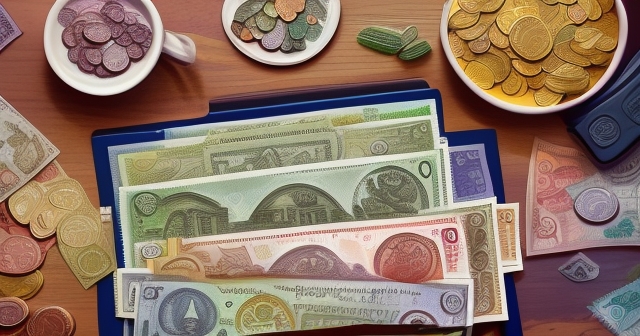
The Foundational Quid: Unpacking the Most Common Term
Without a doubt, the term “quid” stands out as the king of sterling slang. It is the most commonly used informal term for the British pound, whether in singular or plural form. One pound is “a quid,” and ten pounds is “ten quid.” Notice that, unlike the formal term “pounds,” “quid” does not typically take an ‘s’ in the plural. This grammatical quirk is part of its informal charm. You might hear someone say, “That costs twenty quid,” or “Can you lend me a few quid?” It seamlessly replaces “pounds” in casual conversation across the United Kingdom.
The origin of the term “quid” is somewhat debated, adding a layer of linguistic mystery to its widespread use. One popular theory suggests it comes from the Latin phrase “quid pro quo,” meaning “something for something,” which relates directly to the concept of exchange and value that money represents. Another theory links it to the Royal Quid, a term potentially used historically, though documentation is scarce. Some believe it might have roots in Irish slang, eventually making its way across the Irish Sea. Regardless of its exact etymology, its prevalence is undeniable. It’s the default informal unit when discussing prices or sums of money among friends, family, or even in many retail settings.
The ubiquity of “quid” makes it an essential term for anyone wanting to understand or participate in casual conversations involving British currency. While formal financial discussions will always use “pounds sterling” or “GBP,” knowing and understanding “quid” immediately signals a familiarity with local language and culture. It’s more than just a word; it’s a cultural marker. Using it appropriately demonstrates an understanding of the informal register used in the UK. So, if you’re ever in the UK and someone asks for “twenty quid” for something, you’ll know exactly what they mean! This term is so fundamental to UK money slang that it warrants this dedicated exploration. How quickly do you think you could integrate “quid” into your own casual English vocabulary?
Here are some examples of how “quid” is used:
- “Can you lend me ten quid?”
- “This shirt only costs twenty quid.”
- “I need to save up for a holiday; I need about a hundred quid.”
Fivers and Tenners: Navigating the Lower Denominations in Slang
Moving beyond the general term for a pound, sterling slang provides specific nicknames for common banknote denominations. The most widely recognized of these are “fiver” for a £5 banknote and “tenner” for a £10 banknote. These terms are incredibly common and are used by people of all ages and backgrounds across the UK. They are simple, catchy, and immediately understandable within the British context.
Imagine paying for a small purchase or getting change back. You might hand over a “tenner” for something that costs “five quid,” and receive a “fiver” in return. These terms are functional, making casual conversations about money flow more easily than always saying “five pounds” or “ten pounds.” Their simplicity is likely a key reason for their popularity. They roll off the tongue and are easily distinguishable. The origins of “fiver” and “tenner” are relatively straightforward – they are simply derivations of the numbers five and ten, with the “-er” suffix commonly used in English slang to denote items of a certain type or value (think “footer” for a six-foot person, though less common). This simple naming convention highlights how slang can evolve organically from basic linguistic patterns.
These terms are used in a wide variety of informal settings, from shopping and talking about wages to discussing the cost of a night out. For instance, “That concert ticket cost me fifty quid – a tenner for me and four mates” or “I only have a fiver left until payday.” They are deeply embedded in the everyday language surrounding transactions involving smaller amounts of British currency. While a financial analyst would refer to these as £5 notes or £10 notes, the person on the street is much more likely to use “fiver” or “tenner.” Understanding these terms is essential for navigating casual economic interactions in the UK and is a fundamental part of mastering sterling slang for common denominations. Do these simple nicknames make it easier to talk about smaller sums?
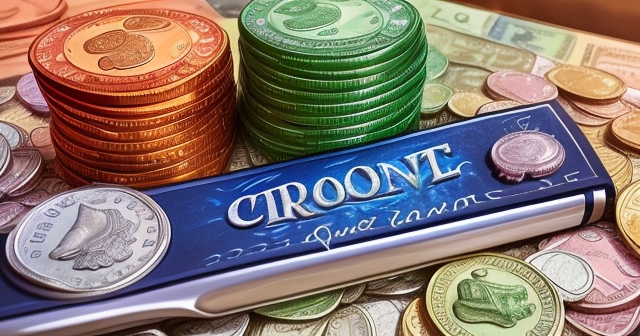
From Ponies to Monkeys: Higher Value Slang Terms
While “quid,” “fiver,” and “tenner” cover the everyday, smaller transactions, sterling slang also extends to larger sums, often with more colourful and less immediately intuitive terms. These terms might be slightly less common in general conversation than “quid,” but they are certainly part of the UK’s informal financial lexicon, particularly in certain contexts like gambling, racing, or perhaps among specific social groups.
Let’s look at some of these higher-value terms:
- Score: Represents £20. Used perhaps less frequently than ‘twenty quid’, but you might hear, “He owes me a score.” Its origin is unclear, but it aligns with the concept of ‘a score’ meaning twenty in other contexts (like ‘four score and seven years ago’).
- Pony: This term signifies £25. While not a current banknote denomination, £25 is a sum that might come up in various contexts. The origin is often linked to horse racing circles or perhaps Indian currency (Poonah), though definitive proof is elusive.
- Bullseye: This term stands for £50. Like ‘pony’, it’s a specific sum rather than a note denomination. Its origin is unclear but could relate to targeting a specific amount or score.
- Ton: This is a common term for £100. Its use isn’t limited to money; ‘a ton’ can also mean 100 mph (miles per hour). In money, it’s frequently heard: “That suit cost me three ton!” meaning £300. The origin likely comes from the term ‘ton’ as a large unit of weight, extended to a large unit of money (£100 being a significant sum historically).
- Monkey: Representing £500, “monkey” is one of the more unusual terms. Its origin is often attributed to Indian 500 Rupee banknotes from the time of the British Raj, which reputedly featured a picture of a monkey. While this is a popular explanation, concrete historical evidence linking the UK slang directly to this specific banknote design is debated. Regardless of origin, saying “That job paid me a monkey” is understood to mean earning £500.
These terms add a level of intrigue to sterling slang. They show how language can develop in specific subcultures before potentially spreading into wider usage. While you might not use these daily, recognizing them when they appear provides valuable insight into the diverse ways people refer to larger sums of UK money informally. They are less transparent than “fiver” or “tenner,” requiring prior knowledge to decipher, which perhaps contributes to their slightly less widespread use compared to “quid.” Have you encountered any of these less common terms before?
The Loose Change Lingo: Dosh and Shrapnel
Beyond the terms for specific denominations, sterling slang also includes terms that refer to money in a more general sense, often with connotations about its form or quantity. Two prominent examples are “dosh” and “shrapnel.” These terms capture the more fluid, less specific nature of money in daily use – the cash in your pocket, the coins jingling in your purse.
“Dosh” is a very common informal term for money in general, particularly cash or readily available money. It often implies spending money or funds available for casual use rather than savings or investments. You might hear someone ask, “Have you got any dosh on you?” meaning “Do you have any cash?” or complain, “I’m a bit short of dosh this week.” The origin of “dosh” is uncertain, with various theories linking it to everything from Russian money (‘denga’) to English dialect words, but its meaning as informal cash or money is widely understood across the UK. It’s a versatile term that fits comfortably into many casual conversations about finances.
“Shrapnel,” in the context of money slang, refers specifically to small denomination coins, or loose change. This term has a much more evocative origin, deriving from the military term for fragments from an explosive shell (named after General Henry Shrapnel). The comparison to scattered, small metal pieces from an explosion vividly translates to the idea of small, scattered coins. It’s the money that accumulates in your pockets, falls between sofa cushions, or fills up a coin jar. “Sorry, I can only pay with shrapnel” is a common phrase indicating someone is paying with a lot of small coins rather than notes. This term highlights how slang can borrow powerful imagery from other domains to describe mundane objects like coins.
These general terms, “dosh” and “shrapnel,” add another layer to the understanding of UK money slang. They show how the language adapts to differentiate not just amounts, but also the form of money being discussed. While “quid,” “fiver,” and “tenner” deal with notes and specific pound values, “dosh” and “shrapnel” are useful for talking about money in a more general or less precise way. They are very much part of the everyday linguistic landscape surrounding the British currency. How do these terms compare to slang for loose change you might use in your own language?
Using Sterling Slang: Cultural Nuances and Social Context
Understanding the individual terms of sterling slang is one thing, but appreciating how and where they are used is equally important. Money slang is not typically used in formal financial reports, academic papers, or official government communications about the British Pound Sterling. Its domain is the informal, the casual, the everyday. It’s the language used among friends, family, in pubs, markets, and shops, or in casual media like tabloid newspapers or certain television shows.
Using or understanding UK money slang can provide a sense of connection and familiarity. For visitors to the UK, recognizing terms like “quid,” “fiver,” or “tenner” can make transactions smoother and interactions with locals feel more authentic. It shows an effort to engage with the local lingo beyond basic tourist phrases. For residents, these terms are simply a natural part of their linguistic environment, used without conscious thought. They are woven into the fabric of British culture and communication.
The choice of whether to use slang or formal terms often depends heavily on context and audience. In a bank, you would discuss “pounds sterling.” In a pub, you might ask for the price of a drink in “quid.” When negotiating a large salary, you’d talk in “thousand pounds,” but when discussing a small debt with a friend, it might be “a few score” or “a couple of ton.” The register shifts according to the social setting and the relationship between the speakers. Furthermore, some terms might be more associated with older generations or specific regional dialects, although terms like “quid,” “fiver,” and “tenner” are widely understood. Being aware of these nuances helps you navigate social interactions in the UK with greater ease and understanding. It’s a subtle but significant aspect of cultural fluency when dealing with British currency in real-world settings. How do you think understanding these informal terms could improve your interactions if you were visiting the UK?
The Etymology and Evolution of Money Slang
The origins of many slang terms are often shrouded in mystery, born out of everyday usage rather than formal decree. This is certainly true for much of sterling slang. While some origins are reasonably well-documented or widely accepted, others are speculative, adding to the rich folklore surrounding these terms. Exploring the etymology of these words offers a glimpse into the historical and cultural forces that shape language, particularly language related to something as central as money.
Consider the term “quid” again. While theories link it to Latin or Irish, the lack of a definitive source highlights how slang can emerge from common usage and spread organically, sometimes obscuring its original point of creation. The term “monkey” for £500, with its popular but debated link to Indian Rupees, illustrates how colonial history and international interactions could potentially influence the slang used for the domestic currency. Terms like “ton” for £100, potentially derived from a unit of weight, show how concepts of quantity and value can be transferred between different domains of measurement and language. Even the vivid comparison in “shrapnel” for coins demonstrates linguistic creativity, borrowing terms from vastly different contexts (warfare) to describe everyday items (money).
Slang is also dynamic; it evolves over time. New terms can emerge, old terms might fall out of favour or change in meaning, and the prevalence of certain terms can shift across generations or regions. While classic terms like “quid,” “fiver,” and “tenner” have shown remarkable staying power, others might be more fleeting or limited in their reach. This constant evolution means that language, including money slang, is a living entity, reflecting ongoing social and cultural changes. Studying the etymology and evolution of these terms isn’t just a linguistic exercise; it’s a way to connect with the history and changing social landscape of the UK. It underscores that currency, while a formal economic tool, is deeply intertwined with the informal language and cultural practices of the people who use it daily.
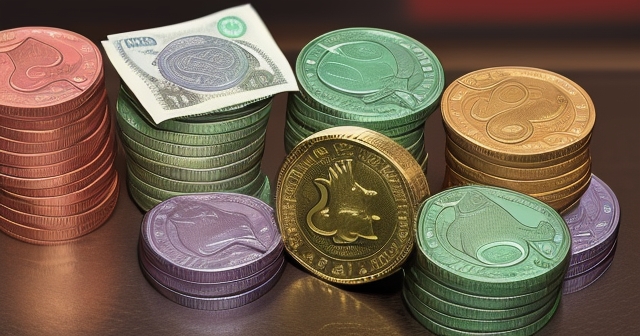
Comparing Sterling Slang to Other Currency Slang
Placing sterling slang within the broader context of money slang used for other currencies around the world reveals both unique features and common patterns. As we noted earlier, the phenomenon of using informal terms for money is universal. Comparing the slang used for the British Pound to that used for the US Dollar, the Euro, or other major currencies can highlight cultural similarities and differences in how societies perceive and talk about money.
For instance, the US Dollar has terms like “buck(s),” “greenback” (referring to the colour), “sawbuck” ($10 bill, historically), and “grand” ($1000). The Euro also has various informal names depending on the country and region, sometimes even adopting terms previously used for national currencies. What similarities do we see? Many slang terms are based on visual appearance (“greenback”). Some use existing words for units or quantities (“grand” for $1000, similar perhaps to “ton” for £100). Others might have obscure or debated historical origins (“buck” for dollar, “quid” for pound). The use of plural forms varies; just as “quid” doesn’t take an ‘s’, “buck” often doesn’t either (“ten buck”).
What might be unique to sterling slang? Perhaps the density of terms for specific, relatively small denominations like £5 (“fiver”) and £10 (“tenner”), or the colourful terms for larger, fixed amounts like £25 (“pony”) or £500 (“monkey”). The specific terms often reflect unique aspects of British history, culture, or even historical links (like the debated Indian Rupee connection for “monkey”). This comparison helps us appreciate that while the need for money slang might be universal, the specific terms and their origins are deeply rooted in local context. It reinforces the idea that language, including financial slang, is a cultural product. By comparing UK money slang to others, we gain a deeper appreciation for its distinctiveness and its reflection of British identity. How does the slang for your local currency compare to sterling slang?
Mastering British Money Talk: A Key to Cultural Fluency
As we conclude our deep dive into the world of sterling slang, it’s worth reiterating the value of understanding these informal terms. For anyone interacting with British people, whether as a visitor, a business associate, or simply through media, recognizing and understanding terms like “quid,” “fiver,” “tenner,” and even the less common ones like “dosh” or “shrapnel” enhances communication and provides a richer cultural experience. It bridges the gap between formal language and everyday conversation, allowing for smoother interactions and a greater sense of connection.
For investors and traders, while sterling slang won’t appear on official charts or in economic forecasts, understanding it adds a layer of real-world context. It’s a reminder that behind the abstract numbers of GBP exchange rates and economic data are real people using this currency in their daily lives, talking about it with their own unique vocabulary. This understanding contributes to a more holistic view of the market and the society in which it operates. It moves beyond purely technical analysis to a more nuanced comprehension of the human element within the economy.
Learning UK money slang is akin to learning idiomatic expressions or regional accents – it’s part of becoming fluent not just in the language, but in the culture. It demonstrates an appreciation for the informal side of British life and communication. So, the next time you hear someone mention needing “a few quid” for a “tenner” purchase or getting “shrapnel” back as change, you’ll be equipped to understand the conversation, participating more fully in the linguistic and cultural exchange. Mastering these informal terms is a small but significant step towards achieving cultural fluency when engaging with the world of the British currency and the people who use it every day.
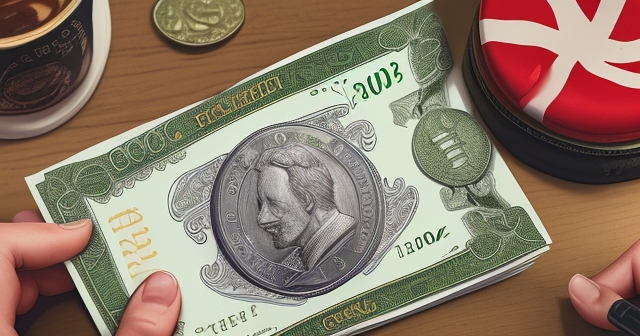
sterling slangFAQ
Q:What does “quid” mean?
A:“Quid” is a slang term for the British Pound.
Q:Why is slang used for money?
A:Slang adds familiarity and casualness to conversations about currency.
Q:What is a “tenner”?
A:A “tenner” refers to a £10 banknote in British slang.
